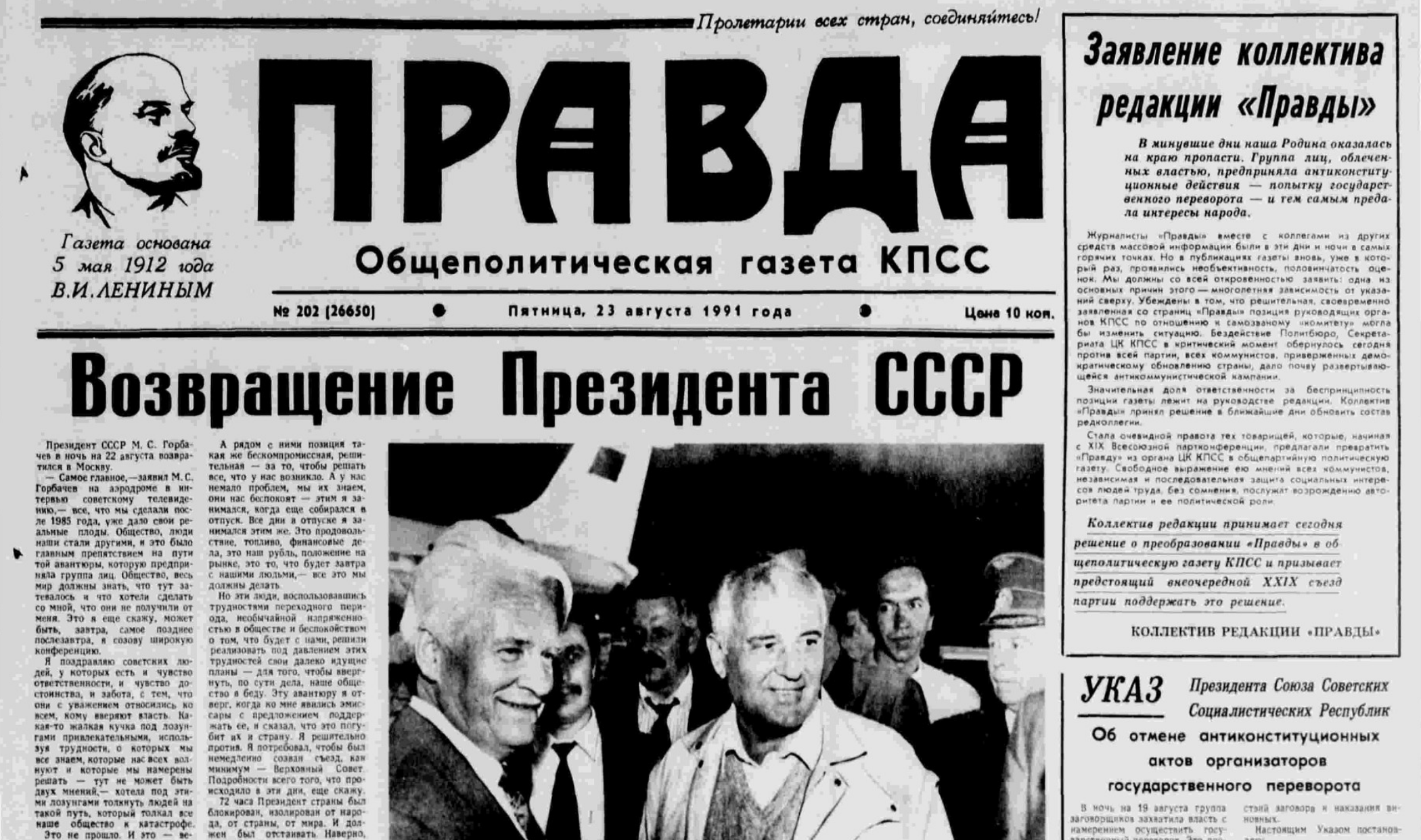Filed Under: Print > Journalism > "Pravda" editors pledge to do better, 23 August 1991
"Pravda" editors pledge to do better, 23 August 1991

Statement by Pravda’s editorial collective
In recent days, our Motherland found itself on the brink of the abyss. A group of individuals, invested with state power, undertook the unconstitutional action of an attempted state coup. In so doing, they betrayed the interests of the people.
During these days and nights, Pravda’s journalists—like our colleagues from other news outlets—sought out the hot spots where events were developing. Yet the newspaper itself, following its longstanding pattern, exhibited tendentiousness and a lack of objectivity. A key reason for this state of affairs, we must acknowledge, is our longstanding dependence on directives from above. We are convinced that, had Pravda made a decisive, timely statement, authored by the CPSU’s leading bodies and directed toward the self-professed “committee” [meaning, the GKChP—MV], events might have unfolded differently. The inaction of the Politburo and the CPSU Secretariat at such a critical moment has today turned every communist committed to the country’s democratic renewal against the Party, providing further fodder to an ongoing anti-communist campaign.
Pravda’s editorial leadership bears a significant share of the responsibility for the newspaper’s unprincipled position. We have therefore decided to change the composition of the editorial board in the coming days.
Those comrades who, since the Nineteenth All-Union Party Conference, have been proposing to transform Pravda from the official organ of the CPSU’s Central Committee into a Party-wide political newspaper, have been proven correct. By freely expressing the views of all communists, by independently and consistently defending the interests of all laboring people, Pravda will undoubtedly contribute to the revival of the Party's authority and political role.
And so, today, the editorial team has elected to transform Pravda into a Party-wide political newspaper. We call upon the upcoming extraordinary Twenty-Ninth Party Congress to endorse this decision.
Signed, Pravda Editors
Since 1912, Pravda had been the official newspaper of the Russian Communist Party, becoming the main mouthpiece of Soviet propaganda after 1918. But during perestroika, the paper’s ironclad façade began to crack. By 1989, its new editor-in-chief, Ivan Frolov, was promising readers “a new approach to glasnost, political pluralism, and dissent.”
An important test of the paper’s newfound candor came during and after the putsch of August 1991. As one of a handful of media outlets the GKChP did not censor during their attempted coup—likely because of its longstanding communist bona fides—Pravda became the main channel for the hardliners’ decrees. By 23 August, however, the editors declared independence from the communist leadership on the top-right corner of the paper’s front page, apologizing to readers for their lapse in objectivity and pledging to uphold better journalistic standards in the future. Yet like many other newspapers, Pravda succumbed to the economic pressures of the early 1990s. Financed by a Greek business conglomerate from 1992 forward, the former communist daily soon became embroiled in copyright disputes that led to its fragmentation into multiple on- and offline entities by the end of the decade.